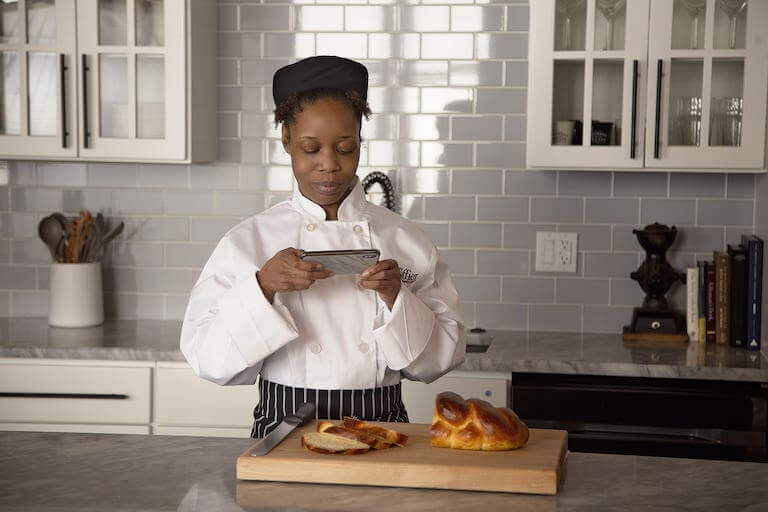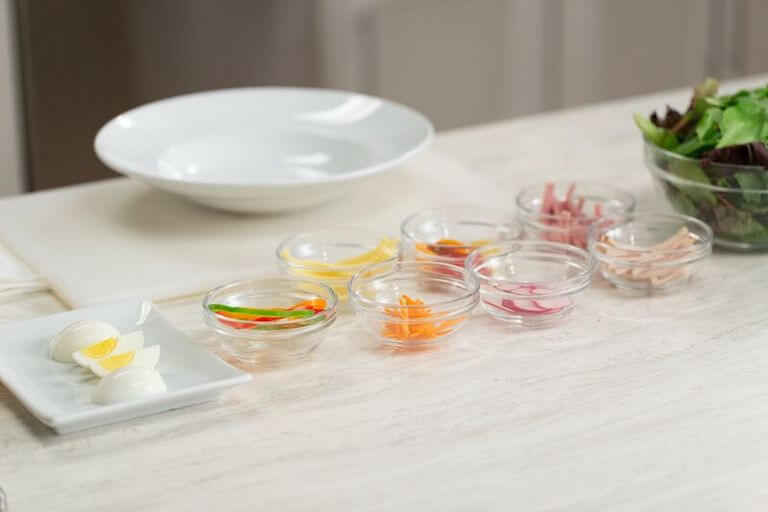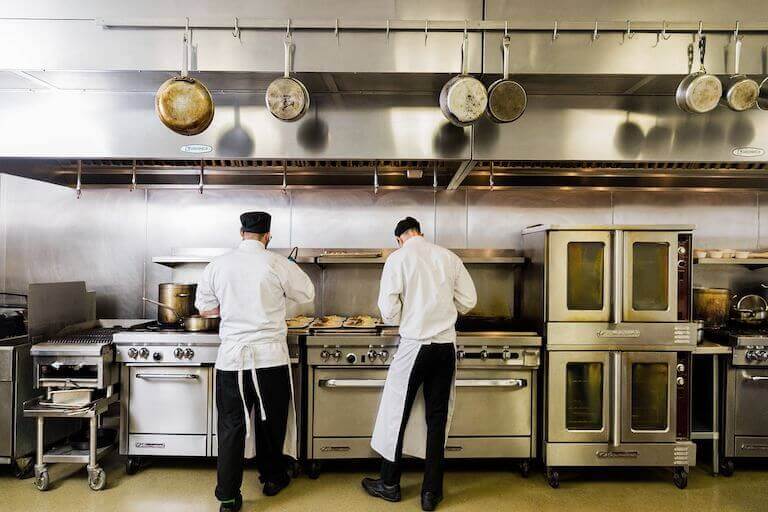If you want to become a successful chef in a fast-paced professional kitchen, honing time management skills is a must.
With fish filets sizzling on the stove, root vegetables roasting in the oven, and orders pouring in, a kitchen provides a seemingly endless list of tasks to keep up with. That means the way you manage your time as a chef can separate you from everyone else in the kitchen—and managing your time well could open up opportunities for leadership and promotion.
Proper time management comes down to streamlining processes, planning ahead, organizing tasks, and delegating. By the end of this article, you’ll know five effective ways to help increase your productivity and make the most of your time in the kitchen.
1. Perfect the Art of Preparation
Imagine cooking multiple meals, each with its own combinations of dishes and sides, while keeping track of everything in the oven, on the stove, and in various stages of plating. All the while, new orders stream in as you work to manage your team.
Since multitasking in a busy kitchen is a given, preparing before a shift is a must. By dicing vegetables, measuring ingredients, and preparing components like sauces ahead of time, you can create organized workstations that are ready to shine when service starts. That means when orders arrive, the team only has to focus on executing the final dish.
Students at Auguste Escoffier School of Culinary Arts have an opportunity to explore how to prepare and deliver meals in a timely fashion while working in a fast-paced environment. To do this well, students practice reviewing recipes and preparing ingredients and equipment in advance.
As you prepare the same meals multiple times, you can develop your ability to better recognize patterns that can allow you to manage your time more effectively.
2. Delegate When Possible
Great chefs never rise to success on their own: they’re always surrounded by supportive and productive teams. If you have the goal of leading a professional kitchen, you’ll need to learn how to delegate to other members of the brigade de cuisine.
No matter what role you have in a kitchen, leadership starts with leading yourself. That requires discipline, preparation, and excellent time management. Once you’ve worked on these elements, you can begin leading others.
For example, you can ask a staff member to garnish a dish or plate a meal while you tend to a steak on the grill. As you develop your own duties and practice leading others, opportunities for advancement may open up.

But remember, effective delegating isn’t about being bossy or demanding. Instead, it involves effective communication that makes life easier for everyone in the kitchen. That’s why Escoffier’s curriculum can include courses that explore leadership skills and how to effectively communicate with staff members.
Not only can a classroom setting help you explore leadership skills, but a culinary or pastry arts externship can offer the opportunity to gain experience working in a professional kitchen, so you can practice your time management skills in a business setting.
3. Stay Organized and Write Everything Down
Have you ever found yourself thinking about something you have to do while standing in front of the stove, only to forget about it a few minutes later? If so, turn to note-taking.
To stay organized and manage your time as a chef, start writing down tasks, helpful tips, and an overall plan for the day. These notes could be in the form of little sticky notes, a list on your phone, or photos to remind you of past mistakes and what you hope to improve next time. Whatever method you choose, writing down your thoughts will help you stay on top of your tasks for the workweek.

A useful tip is to make a to-do list at the beginning of every day. Prioritize the items on your list, so you know exactly what must be done. You can even organize it by how long each task will take to complete. This will set a clear vision for each day and may push you further toward success.
Students at Escoffier can be taught entrepreneurial and productivity skills in their culinary school degree or diploma programs, as well as during their required externships.

Take the Culinary Career Survey
We’ve compiled a checklist of all of the essential questions into one handy tool: career options, culinary interest surveys, educational opportunities, and more.
4. Set Up Your Workstation for Success
Every chef has his or her own method when it comes to setting up a workstation, but one thing is for certain: it needs to be organized. One key component of organization is practicing mise en place. When you know exactly where everything is located, you won’t waste valuable time looking for tools, ingredients, or utensils.
This foundational culinary practice involves checking your recipes, grabbing all necessary ingredients and tools, and measuring out necessary quantities. When the time comes to cook, you can be able to easily move from one step to the next, all while taking as few steps away from your station as possible.

Organizing a workstation is one of the first things Escoffier students can explore in their cooking classes. With this foundation in place, they can continue to practice effectively setting up their stations as they make new dishes. When the time comes for students to enter their culinary externships and cook professionally, they may have already discovered their perfect method for preparing their stations.
“It’s not all about what you learn in the school, but also your experience in the kitchen. You get taught the foundations at school, and Escoffier did a really good job with that part of it.”*
Paige Pospisil, Austin Culinary Arts Graduate
5. Create Routines and Processes
With experience, you’ll begin to develop your own routines and processes to help you better manage your time. Just like waking up, brushing your teeth, and putting on a pot of coffee in the morning becomes second nature, you may find organizing your kitchen workstation becomes an almost thoughtless process.
However, for this to happen, you’ll first need to create routines and processes in your kitchen. By developing these routines, you won’t have to spend time thinking about what you have to do next. Instead, you can focus on your work and leading others.

You may find yourself streamlining how to cook the most popular recipes in your restaurant or developing a process for how to plate certain meals. Or it may involve creating a checklist for opening the kitchen each day.
The more you practice and tweak your processes to perfection, the better they can become, and the better you may be able to manage your time.
Time Management Skills Take Practice
A passion for cooking can only take you so far—preparation and discipline in the kitchen are what separate mediocre cooks from top chefs. Ultimately, your success in the kitchen comes down to how much you’re willing to learn and practice.
This article outlines a few things you can do to get better at managing your time in the kitchen. But knowing what to do can only take you so far.
To become proficient in anything, it can be helpful to study under those who have already worked extensively on the skills you seek to learn, and then practice what you’ve discovered. Escoffier’s professional Chef Instructors can provide exactly that kind of mentorship to Culinary Arts students.
To learn more about what it takes to become a professional culinarian or leader in the food business, request more information about Escoffier’s degree and diploma programs today.
If you liked this article, check these out next:
- What Makes a Good Sous Chef?
- Are the Culinary Arts a Good Career Choice for You?
- How New Chefs Can Stand Out in the Kitchen
This article was originally published on February 10, 2016, and has since been updated.
*Information may not reflect every student’s experience. Results and outcomes may be based on several factors, such as geographical region or previous experience.

